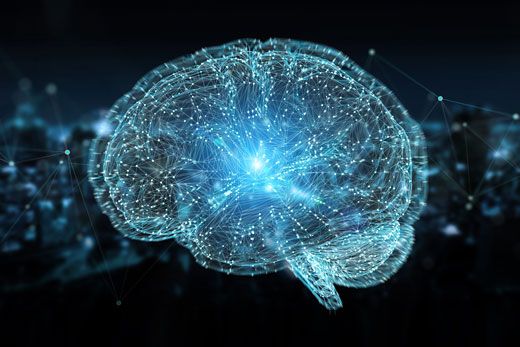
What happens to your brain while you sleep
What our brain does while we sleep has been a mysterious thing for scientists for centuries and the answer is incredibly complex. As a clue, I must say that the phrase “I have to sleep on it” has some truth. You use this phrase when you feel difficult to find the solution to a problem. Before we go through brain activity, it is crucial to know the types of sleep.
There are two types of sleep.
- REM Sleep: REM stands for Rapid Eye Movement. This kind of sleep involves the intervals of consciousness. It is also called Dreaming sleep because it is strongly associated with dreams.
- non-REM Sleep: It does not involve the rapid eye movement. It is a deep sleep characterized by neuron coordination, synchronization, relaxed muscles, and deep breathing.
Stages of sleep your brain goes through
During sleep, the brain goes through five stages of sleep, four of them are non-REM while the fifth one is REM.
- When you experience sleepiness, it means you are in stage 1, it is the light sleep state and allows your muscles to relax. In this stage, the brain activity lowers down and you can easily wake up.
- During Stage 2, three main phenomena of your body slow down, that includes temperate, breathing rate, and heart rate. They fall below the optimum values.
- In the next two stages, 3 & 4, you are in a very deep sleep. You may experience night terrors or sleepwalk in these stages.
- When your breathing and heart rate become irregular, it means you are in stage 5, the REM stage. In this stage, you see the vivid dreams. The dreams that you see in this stage are more likely to be memorable.
Memory and retention
Sleeping recharges your body, and all of your body parts including the brain get the lost energy. The main impact is on declarative and procedural memories. Information retention ability is also nourished even after a few minutes of nap. So it is highly recommended that you should learn and write creatively after a good sleep when the brain’s activity is at the peak.
Restoration
The brain and its functionality get to the original state after a night’s sleep. Rest is not enough, you have to go into the deep sleep to recover the physical and mental fatigue. When you take proper sleep, your breathing rate decreases, and you consume less oxygen, so the brain has to work less hard. This helps in the synchronization of your neurons. This decrease in metabolic rate helps your brain to conserve as much energy as possible. Less energy expense tones your muscles thus making your body fresh.
Why Choose Sleep Station?
Sleep Station is your source for name-brand closeout mattresses up to 75% off regular retail prices. Our commitment to providing the best sleep solutions remains unmatched. We invite you to stop by your nearest location in Munford to find the perfect mattress for you!